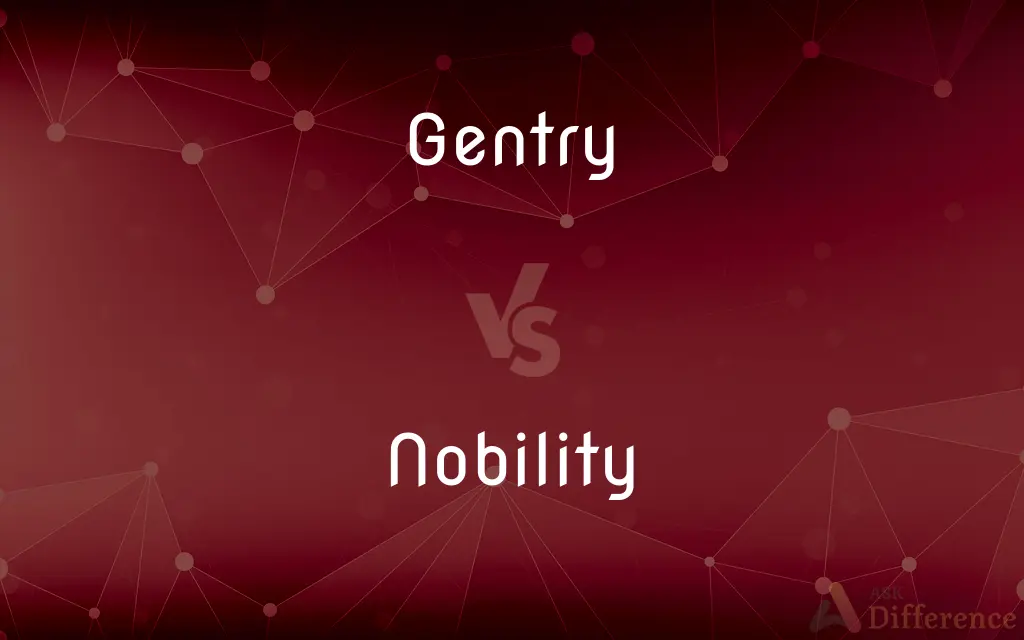Gentry vs. Nobility — What's the Difference?

Difference Between Gentry and Nobility
ADVERTISEMENT
Compare with Definitions
Gentry
People of gentle birth, good breeding, or high social position.
Nobility
Nobility is a social class normally ranked immediately below royalty and found in some societies that have a formal aristocracy. Nobility has often been an estate of the realm that possessed more acknowledged privilege and higher social status than most other classes in society.
Gentry
An upper or ruling class.
Nobility
A class of persons distinguished by high birth or rank and in Great Britain including dukes and duchesses, marquises and marchionesses, earls and countesses, viscounts and viscountesses, and barons and baronesses
"The old English nobility of office made way for the Norman nobility of faith and landed wealth" (Winston S. Churchill).
Gentry
The class of English landowners ranking just below the nobility.
ADVERTISEMENT
Nobility
Noble rank or status
Congress may not grant titles of nobility.
Gentry
People of a particular class or group
Another commuter from the suburban gentry.
Nobility
The state or quality of being exalted in character.
Gentry
Birth; condition; rank by birth.
Nobility
A noble or privileged social class, historically accompanied by a hereditary title; aristocracy.
Gentry
Courtesy; civility; complaisance.
Nobility
(uncountable) The quality of being noble.
Gentry
People of education and good breeding.
Nobility
The quality or state of being noble; superiority of mind or of character; commanding excellence; eminence.
Though she hated Amphialus, yet the nobility of her courage prevailed over it.
They thought it great their sovereign to control,And named their pride nobility of soul.
Gentry
(British) In a restricted sense, those people between the nobility and the yeomanry.
Nobility
The state of being of high rank or noble birth; patrician dignity; antiquity of family; distinction by rank, station, or title, whether inherited or conferred.
I fell on the same argument of preferring virtue to nobility of blood and titles, in the story of Sigismunda.
Gentry
Birth; condition; rank by birth.
She conquers him by high almighty Jove,By knighthood, gentry, and sweet friendship's oath.
Nobility
Those who are noble; the collective body of nobles or titled persons in a state; the aristocratic and patrician class; the peerage; as, the English nobility.
Gentry
People of education and good breeding; in England, in a restricted sense, those between the nobility and the yeomanry.
Nobility
A privileged class holding hereditary titles
Gentry
Courtesy; civility; complaisance.
To show us so much gentry and good will.
Nobility
The quality of being exalted in character or ideals or conduct
Gentry
The most powerful members of a society
Nobility
The state of being of noble birth
Share Your Discovery

Previous Comparison
Hesitative vs. Hesitant
Next Comparison
Affliction vs. Sickness














































